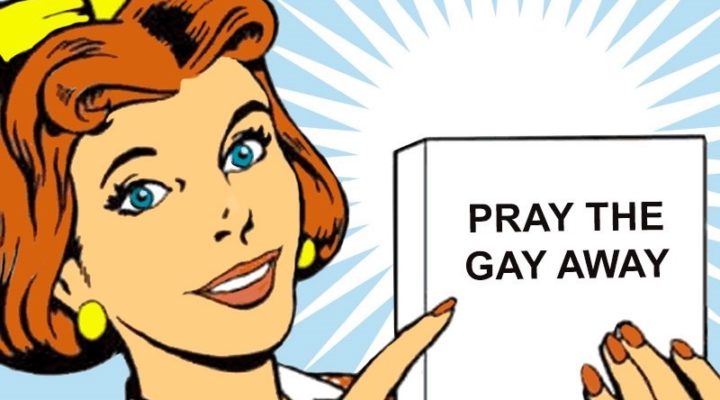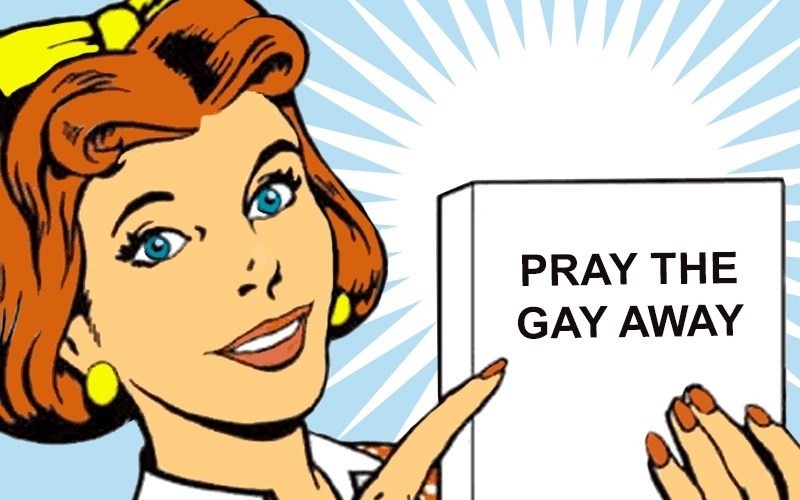Two faith-based efforts to ban so-called “conversion therapy” for members of the LGBTQ community launched last week, one in the United States and the other a global effort based in the United Kingdom.
Conversion therapy is a widely discredited attempt to change or “repair” the sexual orientation of individuals who experience same-sex attraction. It also is known as “reparative therapy.” Its strongest proponents have been evangelical Christians, who teach that all same-sex attraction is against God’s creation plan and can be “cured.”
This work gained its greatest notoriety with the group Exodus International, whose leader in 2012 disavowed the work and said he had been wrong.
The Good Fruit Project
In the United States, the new and coordinated effort to ban conversion therapy is led by a partnership between Q Christian Fellowship and the Trevor Project.
Q Christian Fellowship is an independent nonprofit “dedicated to pursuing a world where all LGBTQ people are fully loved by family, church and community.” It hosts an annual conference and provides year-round resources through its website and other means. The Trevor Project is a secular, research-driven organization “on a mission to end suicide among LGBTQ youth.”
Although approaching this issue from sacred and secular vantage points, “the two organizations are united in their common experience of serving LGBTQ people who have been profoundly affected, and all-too-often deeply wounded, by the experience of conversion therapy in a Christian context,” the project’s website explains.
At the heart of this partnership is a campaign to enlist individuals to sign a pledge not to attempt to change members of the LGBTQ community and to encourage their faith communities to refrain from the same. Resource documents also are available from the website.
The pledge cites Romans 13:10 (“Love does no wrong to a neighbor”) and calls signatories to commit to acts of love and care.
The pledge cites Romans 13:10 (“Love does no wrong to a neighbor”) and calls signatories to commit to acts of love and care. It states: “Recognizing that conversion therapy and other change efforts bear bad fruit, I will commit to respecting the physical, mental, emotional and spiritual health of LGBTQ siblings by refraining from trying to change their sexual orientation or gender identity through my words, deeds, ministries and policies and I will actively encourage my faith community to do the same.”
Global Interfaith Commission on LGBT+ Lives
In London, a large group of interfaith leaders rolled out their own declaration against conversion therapy, with more than 370 signatories from 35 countries announced at the launch. The declaration calls for an end to violence against and the criminalization of LGBTQ individuals.
Initial signatories include Archbishop Desmond Tutu of South Africa, former Chief Rabbi of Ireland David Rosen and former Irish President Mary McAleese.
Jayne Ozanne, director of the Global Interfaith Commission on LGBT+ Lives, told CNN the declaration is a landmark movement.
“We’ve never had such a powerful, clear and supportive statement from so many leaders,” she said. “I do not think that any government can be deaf to the cries of survivors. … We need to act with some urgency.”
“We recognize that certain religious teachings have, throughout the ages, been misused to cause deep pain and offense to those who are lesbian, gay, bisexual, transgender, queer and intersex.”
The organization’s website states: “We recognize that certain religious teachings have, throughout the ages, been misused to cause deep pain and offense to those who are lesbian, gay, bisexual, transgender, queer and intersex. This must change. That is why we have launched the Global Interfaith Commission on LGBT+ Lives, which aims to provide a strong and authoritative voice from religious leaders across the global faith community who wish to affirm and celebrate the dignity of all, independent of a person’s sexuality, gender expression and gender identity.”
This organization’s declaration is about double the length of the Good Fruit Project’s pledge. It frames the issue as one of “sanctity of life” and “dignity for all.”
“We affirm that all human beings of all sexual orientations, gender identities and gender expressions are a precious part of creation and are part of the natural order,” it states. “We affirm that we are all equal under God, whom many call the Divine, and so we are all equal to one another. We, therefore, call for all to be treated equally under the law.”
Signers acknowledge that religious teachings have been used to fuel oppression of the LGBTQ community and have led to “alienation of many by their families, their religious groups and cultural communities.”
“We ask for forgiveness from those whose lives have been damaged and destroyed on the pretext of religious teaching,” it continues. “We believe that love and compassion should be the basis of faith and that hatred can have no place in religion.”
Related articles:
Couple helps parents of LGBTQ kids come out of the closet
On banning conversion therapy: Listen with your heart | Bob Browning
10 things we’re learning about the LGBTQ debate in the church


